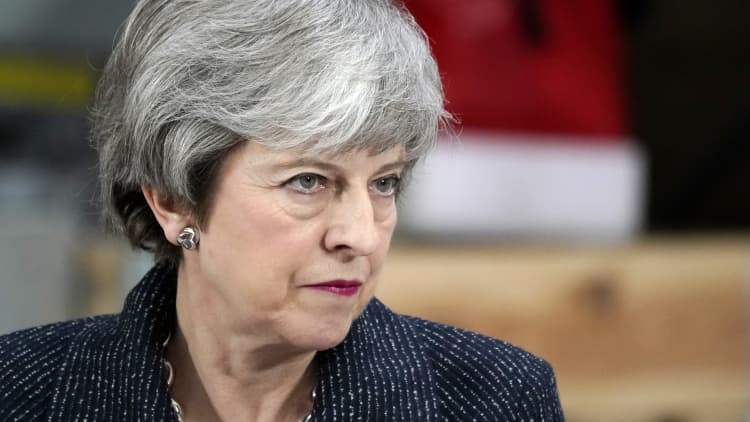The leader of the United Kingdom Theresa May has failed again in her bid to get her Brexit deal past Parliament, leading to fevered speculation that she must now call a general election.
May's template to leave the bloc has been rejected three times and currently there is no other deal agreed with the European Union.
The prime minister had faced an uphill task to overturn the 149-vote rejection of her EU divorce deal when it was last voted on earlier this month. May had even offered her future resignation in an apparent exchange for the support of the deal, but the victory failed to materialize and was rejected on Friday afternoon by a margin of 58 votes.
With Britain now set to leave the EU on April 12 and with no formal agreed deal in place, there could be a no-deal Brexit, yet another vote on May's agreement or even a second referendum. Some on Friday suggested that a new government would be a possible next step.
The EU has previously indicated that it would extend Britain's membership to allow any election to be held. It would also would mark the country's third general election in four years.
After the vote on Friday, the leaders of the main opposition Labour party and Scottish National Party both responded by calling for May to now hold a general election.
Why an election?
At first glance, a parliamentary attempt to wrest control of the Brexit process on Wednesday this week appeared to have only muddied the waters, throwing up eight separate rejections of Brexit possibilities by lawmakers.
However, Wednesday's most successful option, a permanent customs union with the EU, is viewed as a key reason why an election may be required. Lawmakers only narrowly defeated the customs union option and it could even command a majority support in Parliament during another vote on Monday.
Should that happen, May faces a problem. Despite it being viewed as a way forward by many in Parliament, she would struggle to support a customs union as it contradicts the current Conservative Party manifesto.
Additionally, many Conservative Brexiteers dislike a customs union as it prevents Britain from arranging its own trade deals. Should May offer her support, it would likely split her fractured party even further.
However, a fresh election at this stage could also weaken the number of opposition lawmakers in Parliament, giving the Conservative Party a stronger mandate to enact Brexit. Some commentators note that the U.K. leader may appeal to the public that by rejecting her deal with Europe, the rival Labour Party has time and again failed to honor the 2016 referendum result.
The Conservative election strategy could be boiled down to one simple appeal — back us and we'll end this Brexit mess.
Big risk to May
But an election carries risk and could create more problems for the Conservative Party than it solves.
Many U.K. lawmakers don't want to take part in European parliamentary elections on May 23 and any election would likely force this. It doesn't resolve the Conservative Party split over Brexit policy and it could be punished in the polls by voters who see May's government as responsible for failing to deliver Brexit on time.
Polls suggest any race to 10 Downing Street remains tight and the Labour Party could formulate a "softer Brexit" involving a customs union that the U.K. public may be ready to support.
Paul Dales, the chief U.K. economist at Capital Economics, said the U.K. leader firstly needs to ask the EU for another delay to the Brexit process.
"The EU has indicated a delay would be longer (perhaps a year?), would require the UK to take part in EU elections in May and that the UK would need to indicate 'a way forward'," he said in a research note.
"If a delay can't be agreed, then no Brexit (by revoking Article 50) or a no deal could happen. Oh and all this needs to be done within two weeks when in all honesty we don't know if Mrs May will be the Prime Minister in two days' time! A general election is also possible."
Watch now:



